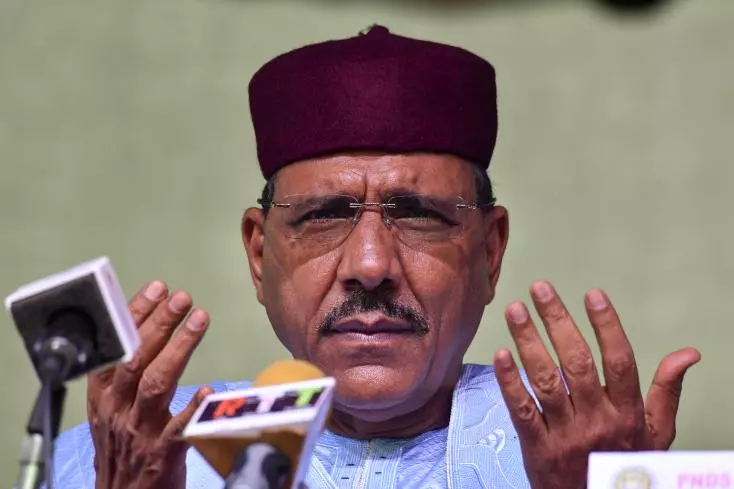Nigerien President Mohamed Bazoum, overthrown by soldiers on Wednesday evening, was one of the last allies of Western countries in a Sahel destabilized by jihadist violence and military coups.
In this troubled region, Mohamed Bazoum clashed however: a few months after the withdrawal of French troops demanded by Burkina Faso, and almost a year after the end of Operation Barkhane, 1,500 French soldiers are still present in Niger.
In its fight against the jihadist attacks which undermine the west and east of the country, Niger benefited from the support of several Western countries including France and the United States, which have military bases there.
Mohamed Bazoum had met the head of European diplomacy Josep Borrell in Niamey at the beginning of July, after an interview with the American Secretary of State Antony Blinken in March.
Josep Borrell had announced the strengthening of military support from the European Union (EU) to fight jihadist groups. For his part, Antony Blinken wanted to maintain security ties with Niger.
If Mali and Burkina Faso are led by juntas that came to power in 2021 and 2022 respectively – also citing the security situation -, Mohamed Bazoum was the first president to come to power after a democratic transition between two elected presidents, in his country also plagued by coups and putsch attempts since independence in 1960.
“Our young democracy has just succeeded in 2021 in a first alternation through the ballot box, a reflection of the maturity of the people and the wisdom of the leaders,” he said in March.
But he had already been destabilized several times: on March 31, 2021, the Nigerien government announced the arrest of several people after an alleged coup attempt, two days before Mohamed Bazoum was sworn in. In March 2022, another coup attempt was foiled by the Nigerien authorities.
network man
Successor to Mahamadou Issoufou, Mohamed Bazoum intended, when he took office, to ensure the “continuity” of the one for whom he was the right arm for ten years.
Having long remained in the background, Bazoum took care of the apparatus of the Nigerien Party for Democracy and Socialism (PNDS, of which he is one of the founding members like Issoufou), but also by playing the faithful lieutenants as Minister of Interior or Minister of State in the presidency during Issoufou’s re-election in 2016.
Network man, with good relations abroad, he had left office in mid-2020 to devote himself to the presidential election, the programmed objective of a man in the shadows propelled to the front row of the imposing machine deployed for the election by the PNDS.
Born in 1960 in Bilabrine in the Diffa region (southeast), Bazoum is an Arab, a minority community in Niger, which earned him accusations of his “foreign” origins during the campaign.
After studying in Gouré (south-east), then a baccalaureate in Zinder, he left to study philosophy in Senegal. He taught there for six years in provincial high schools, gaining a certain talent as a speaker.
His easy contact and his philosophical anchoring on the left are nuanced by a “hard air, that of someone who we know can have a firm hand”, estimated in 2021 an observer of Nigerien politics in Niamey.
Regarding the corruption cases that have undermined the Issoufou presidency, Bazoum was favored: “his name is not mentioned in the main corruption scandals that have often tarnished the regime” and “he is recognized for a certain rigor in the management of affairs public and outspoken,” said Ibrahim Yahya Ibrahim, researcher at the International Crisis Group (ICG).
This article is originally published on information.tv5monde.com







